The goal of any given workstation is to create an efficient space in which a worker may easily utilize, access and organize all tools and supplies required to complete a specified task. Read More…
Our workbenches come in a variety of styles including ergonomic height adjustable, chemical resistant, ball transfer surface, computer stations, laminar flow stations and more.
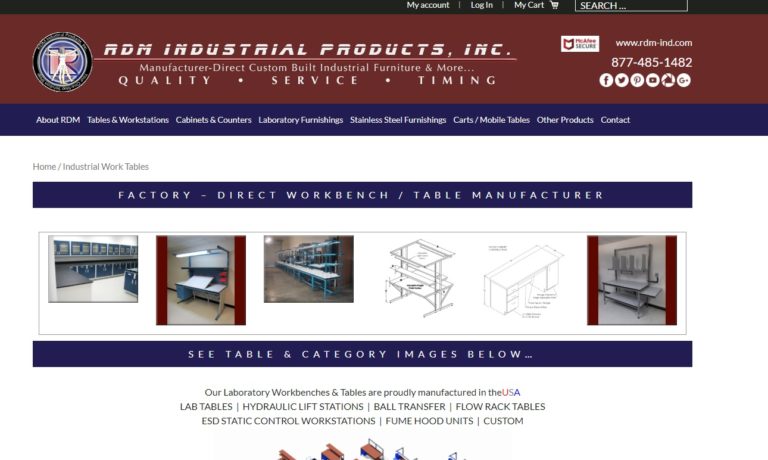
As a workstation manufacturer, Pro-Line offers industrial furnishing that increases employee productivity through creating an improved employee work environment.
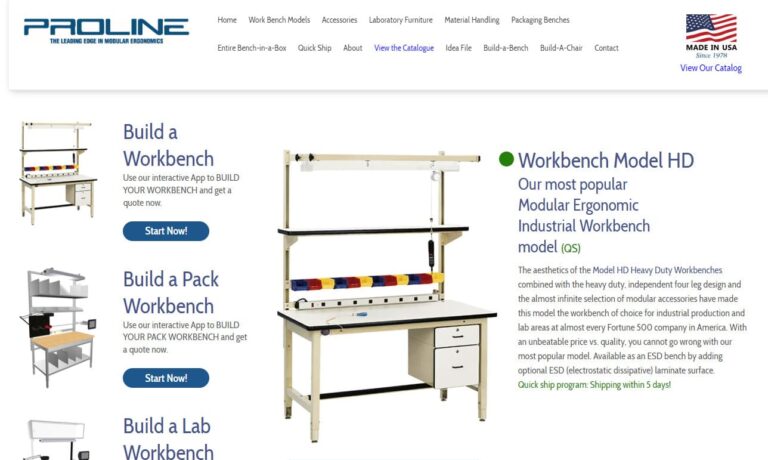
Formaspace manufactures custom technical furniture, accessories, and services. It develops elegant, practical, flexible solutions for customers in laboratory, technical, drafting, material handling, and industrial environments.

Rousseau manufactures versatile workstations that simplify the user's job while increasing operator efficiency and productivity. The workstations feature an extensive choice of accessories so they can adapt and evolve with your needs. From modular to industrial, we can customize each workstation to your specifications.

Formaspace manufactures custom office and laboratory furniture at scale. Large or small projects with applications for any space. With over 40 years’ experience, our projects range from Life Sciences, to education, office and industrial. Let us be the expert from the highly technical to the fairly straightforward, indoor to outdoor, front to back of house. Made in America using locally sourced...

More Workstation Furniture Manufacturers
Practical, reliable, and efficient workstation furniture is found in nearly every office building, warehouse, manufacturing plant, clean room, hospital, and assembly line in such diverse fields as automotive, metalworking, woodworking, electronics, medical, and food and chemical processing.
Depending on the task at hand, most of these workstations involve a large flat desk-like surface on which to operate machines, assemble products, and write and review documents. Drawers, shelves, cabinets, and cubbies are common workstation furnishings. Though some workstations are made for standing operations and have no seating, most employ a chair, stool or bench.
While work benches and stations must promote increased productivity, worker safety has become an ever increasing concern leading to the use of ergonomic workstation furniture in many industrial settings. This type of furniture is designed to suit the needs of the employee in order to reduce the risk of injuries related to repetitive or strenuous activity.
In addition to protecting the worker, many workstations offer some degree of protection for the tools, equipment, and all other paraphernalia by creating a safe and secure housing structure for often delicate instrumentation.
The variability of workstation furniture means that several different materials and manufacturing processes are needed to create each unique or uniform piece. Common materials include epoxy resins, phenol resins, stainless steel, steel, aluminum, wood, marble, slate, laminate, and melamine all of which may be used to create the entirety of a piece of furniture, or in conjunction with components fabricated from other materials.
Material selection is directly related to the intended use of a work area as, for example, applications using or producing harsh chemicals or sensitive materials must be constructed of nonreactive materials such as titanium and stainless steel.
Metal and plastic apparatus are formed through extrusion, die cutting, injection molding, and other such processes while wooden elements are sawed and sanded. The many elements are then nailed, bolted, screwed, and/or welded together with hinges and casters carefully placed as needed for portable workbenches.
Workstation furniture and equipment is often modular and adjustable to suit the needs of changing workers and tasks. Modular workstations allow workers to configure the furniture in a manner specific to the needs of a particular job, as well as their own comfort and safety. Height, storage capabilities, and power supply in the case of electronics as well as length, width, load capacity, and surface type are some of the features that may be adjustable on modular furnishings.
Often suppliers offer both custom workstation furnishings and standardized configurations.

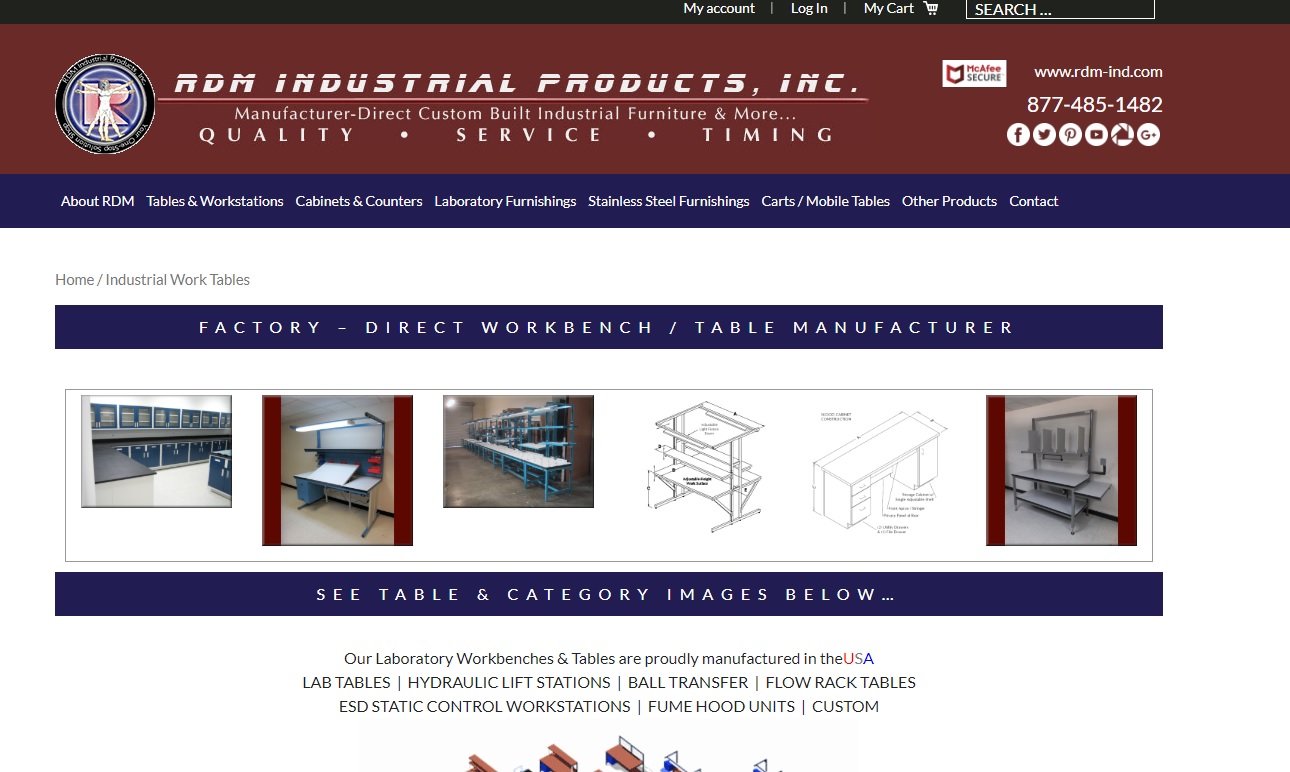
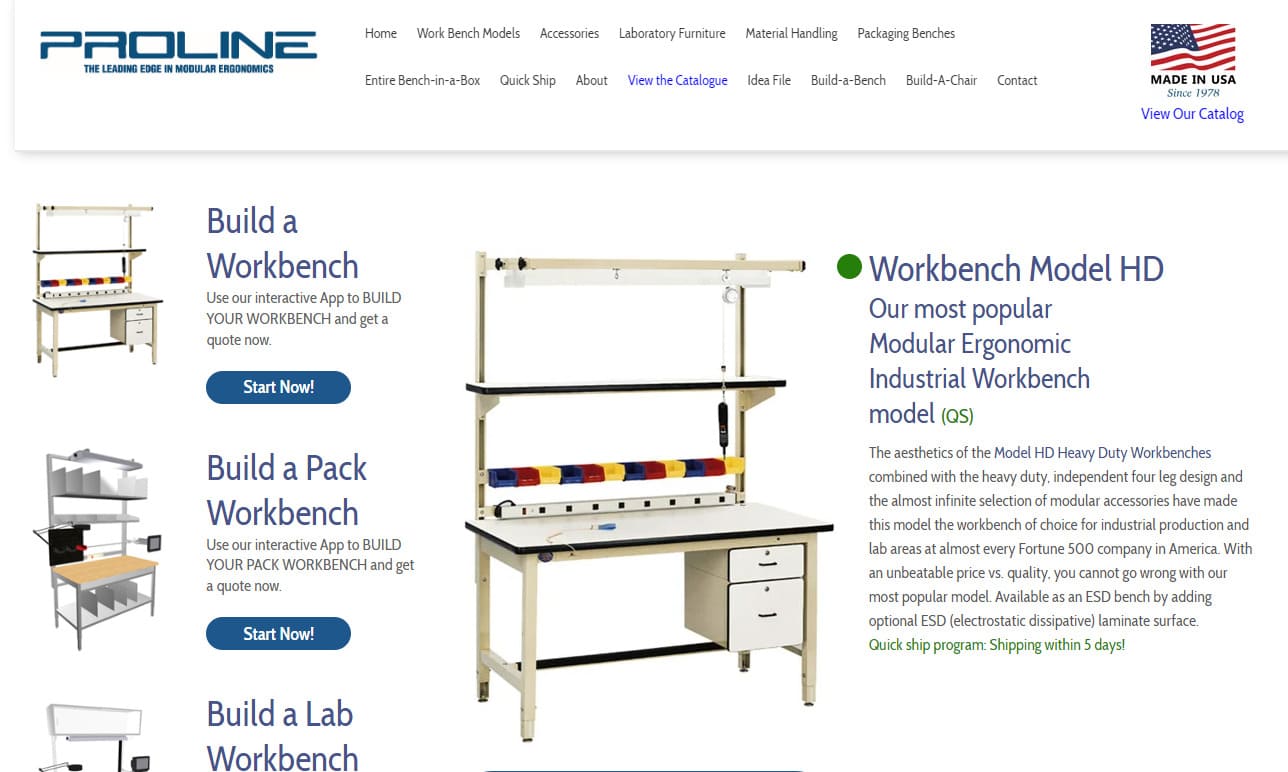



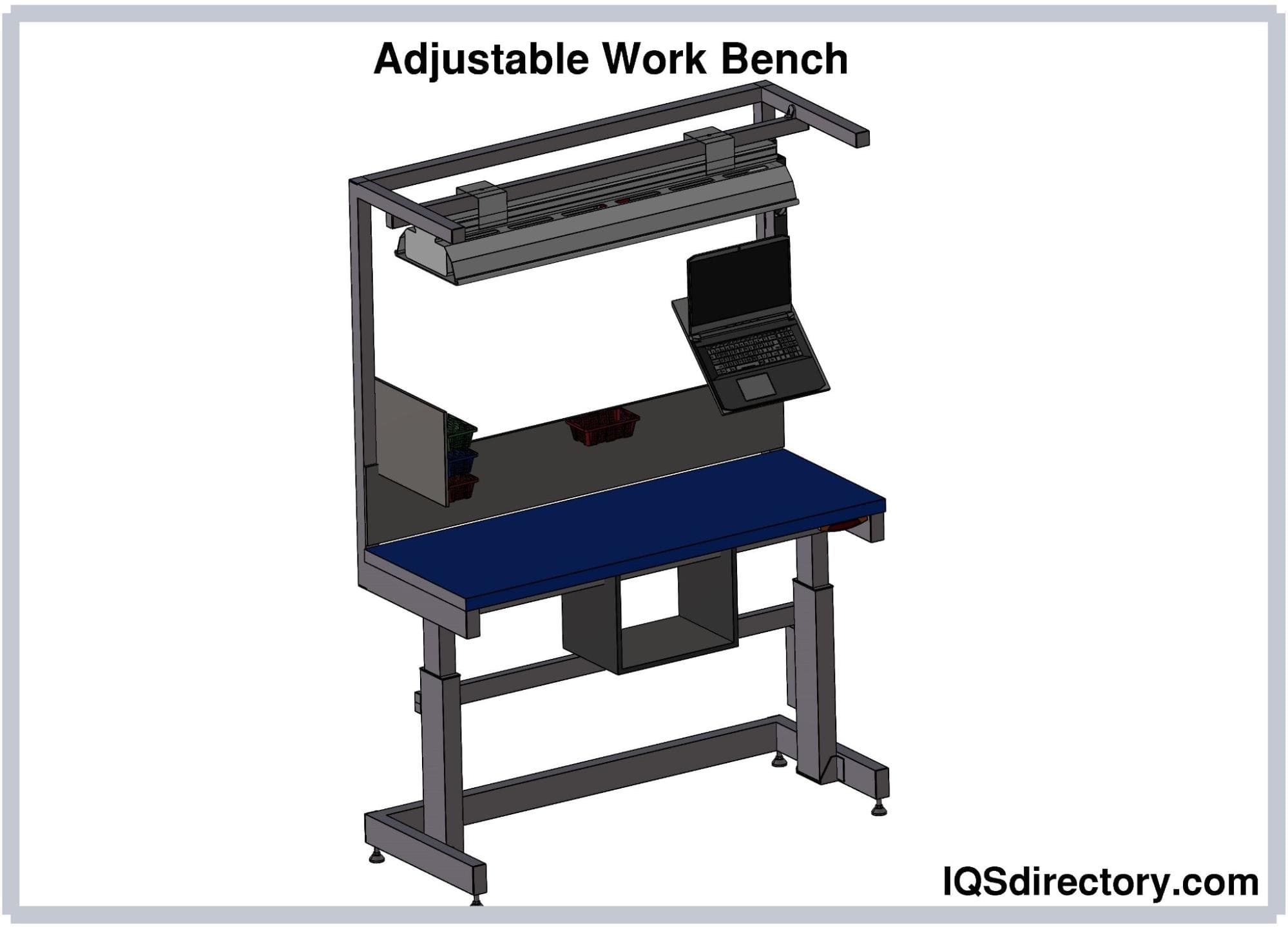
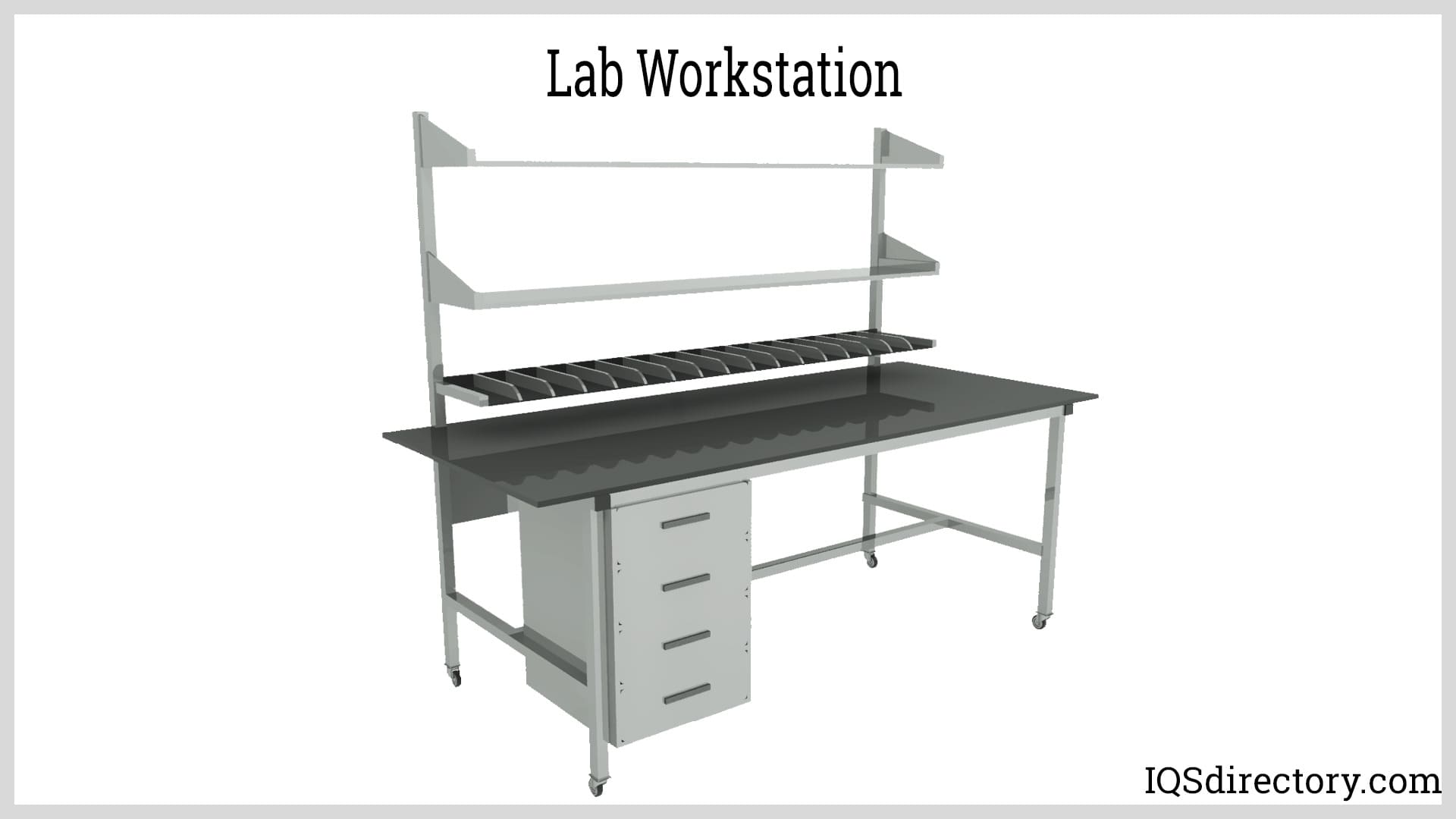
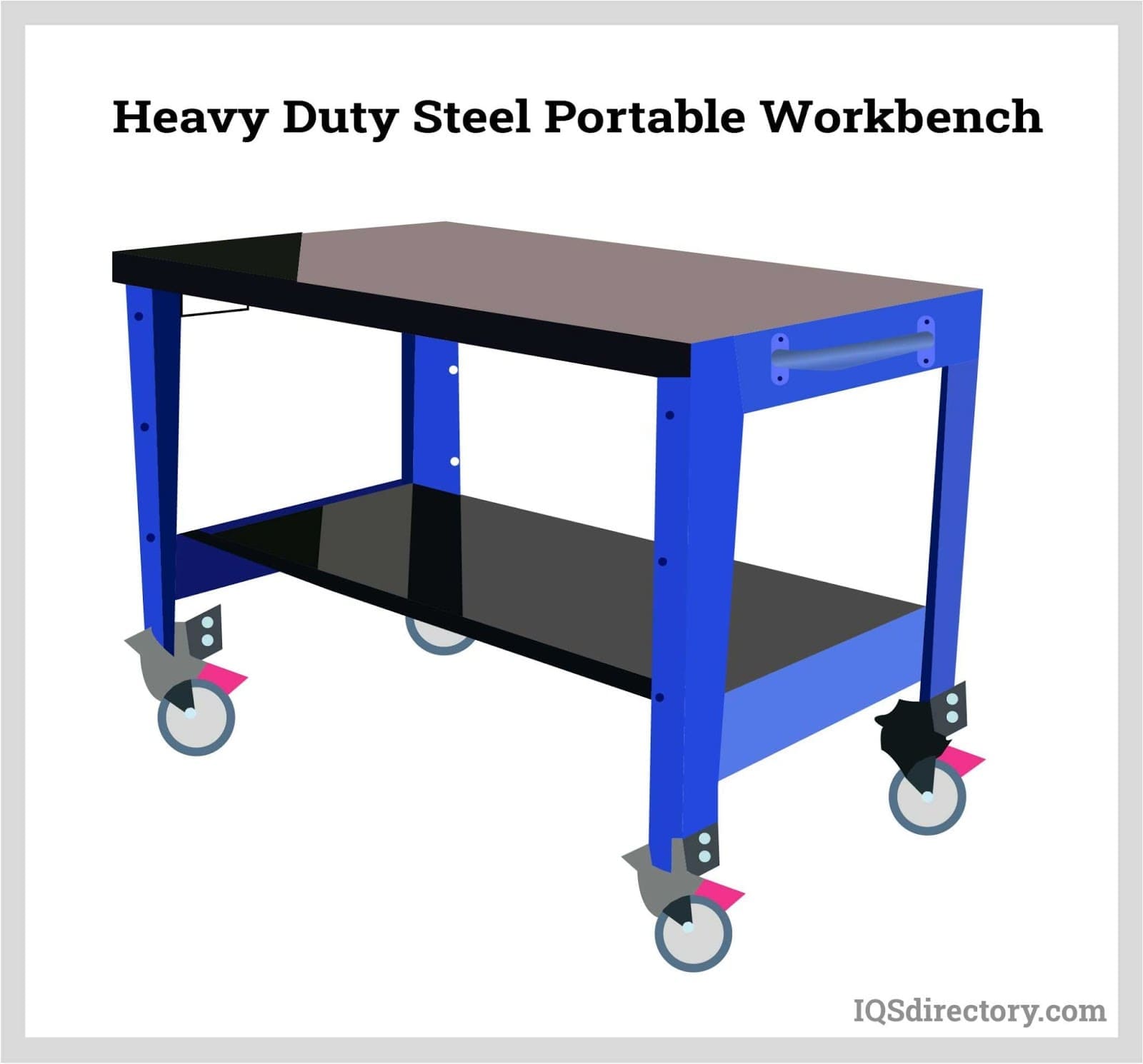
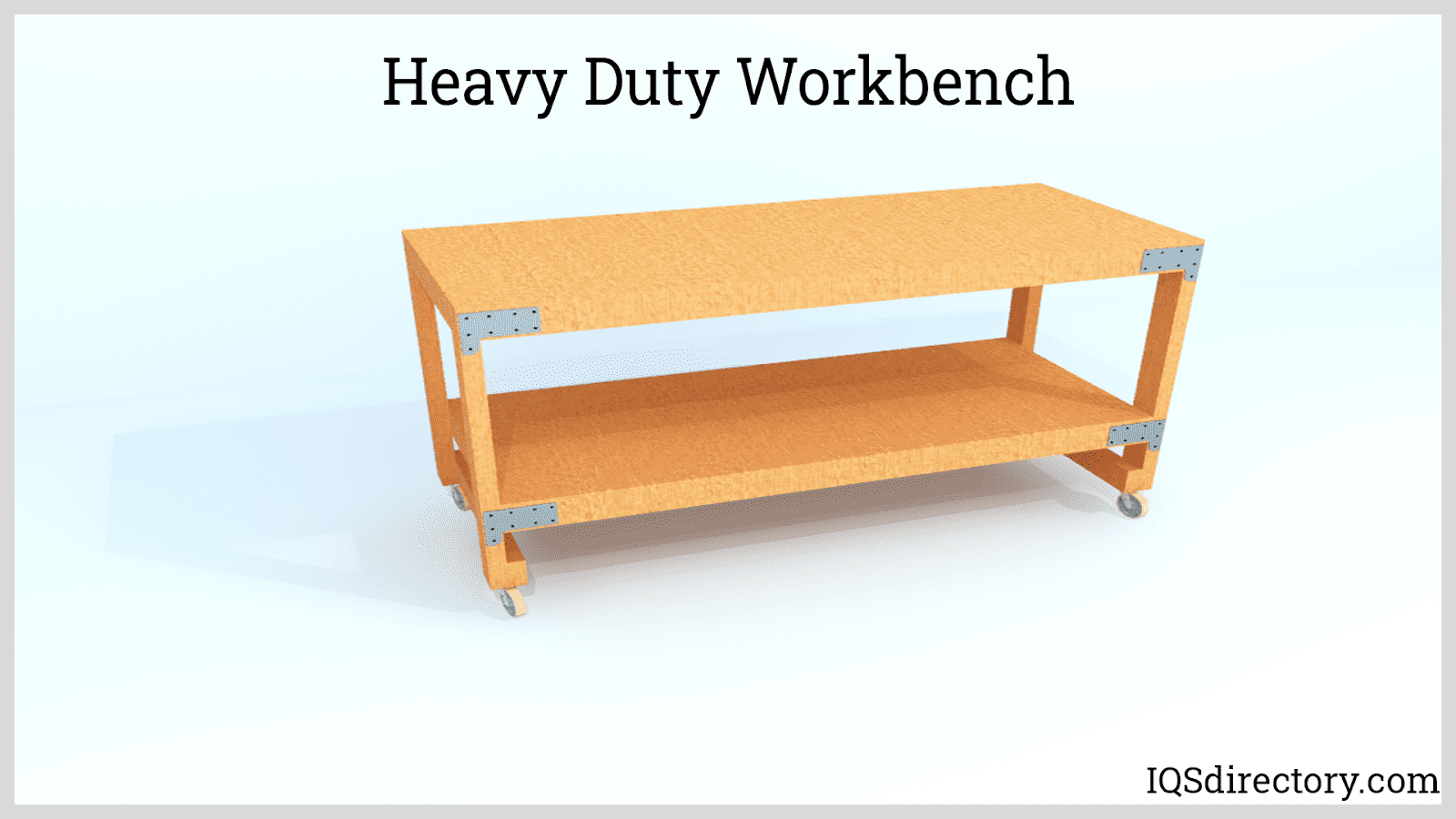
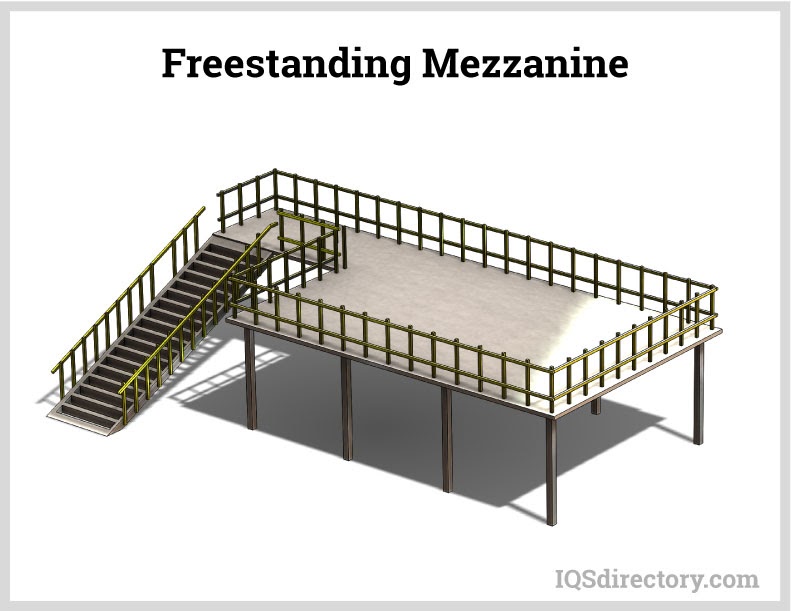
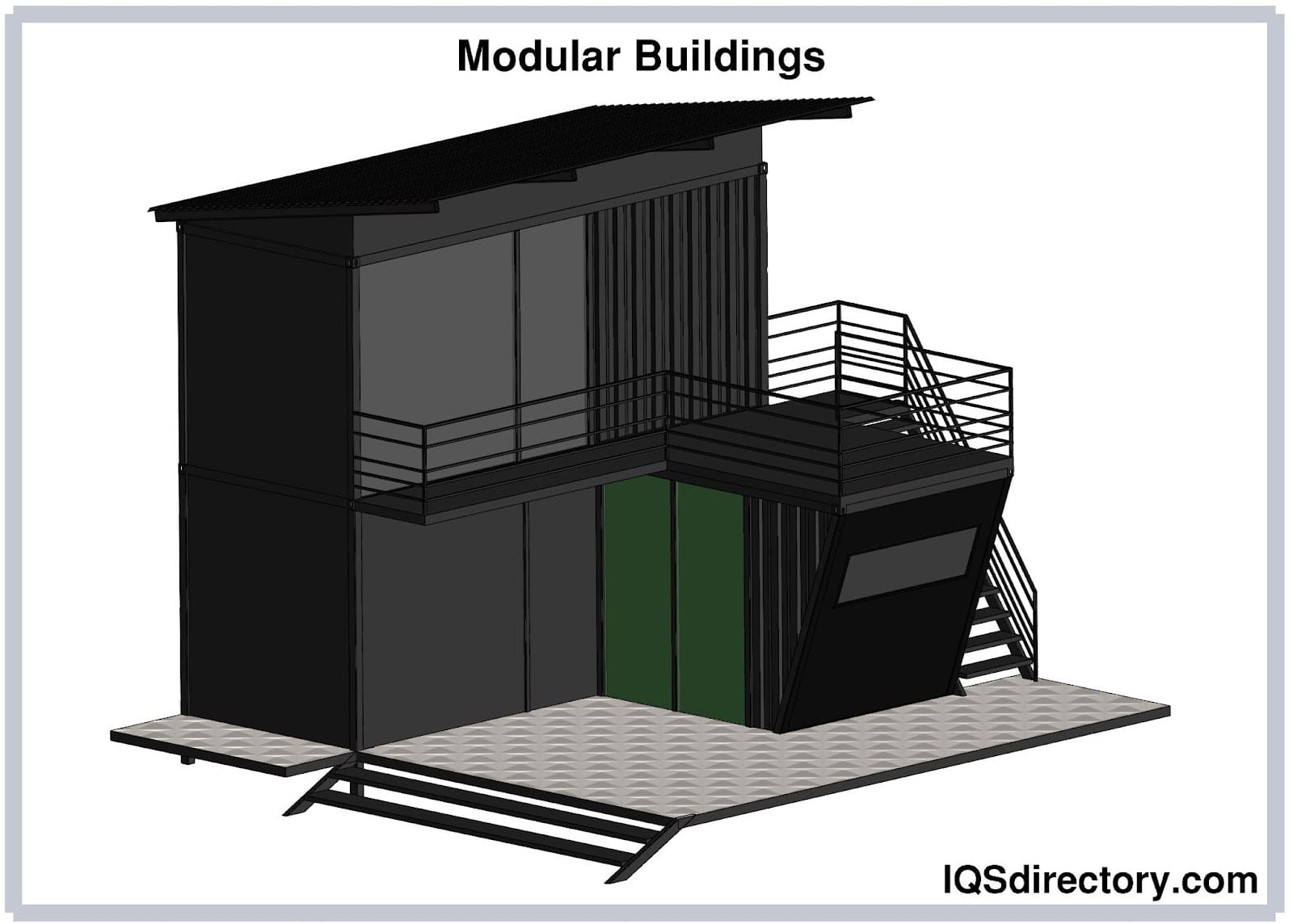
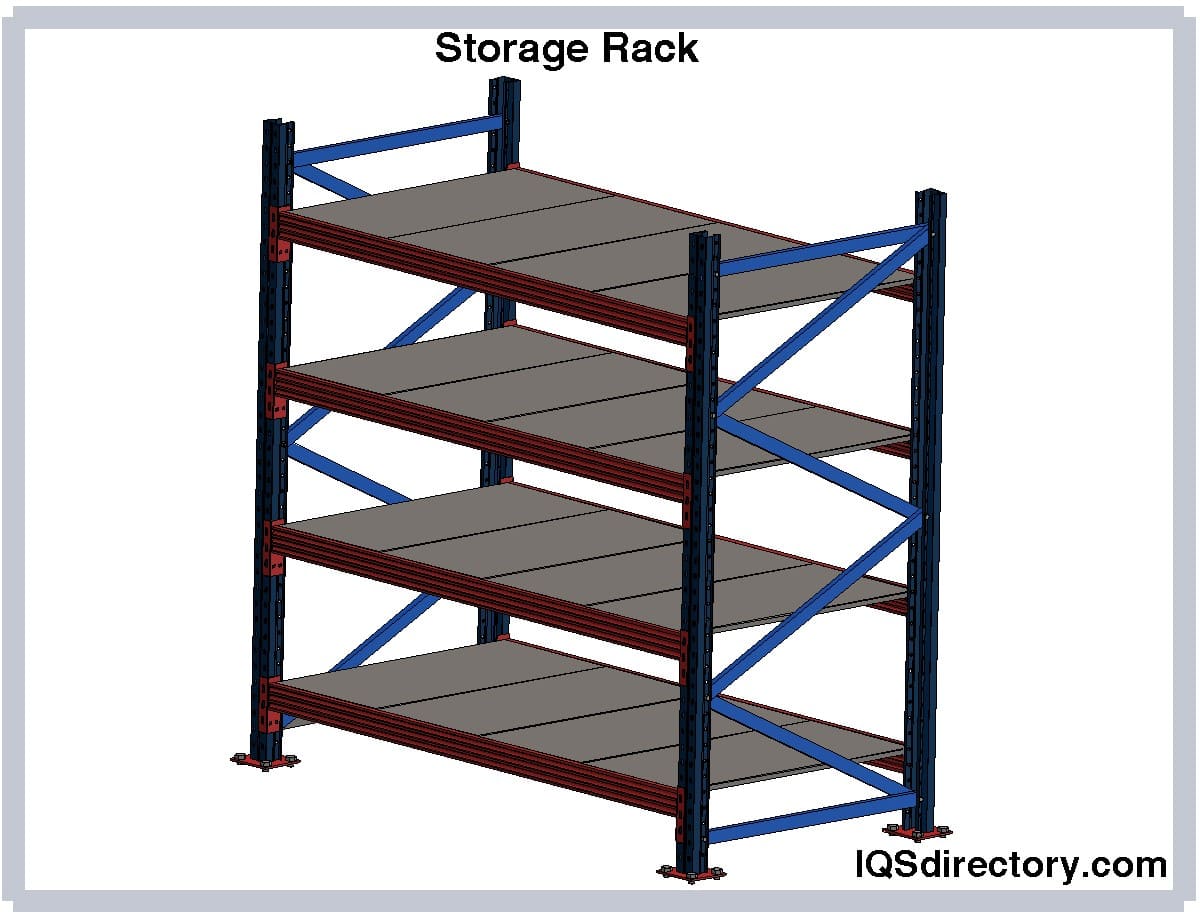
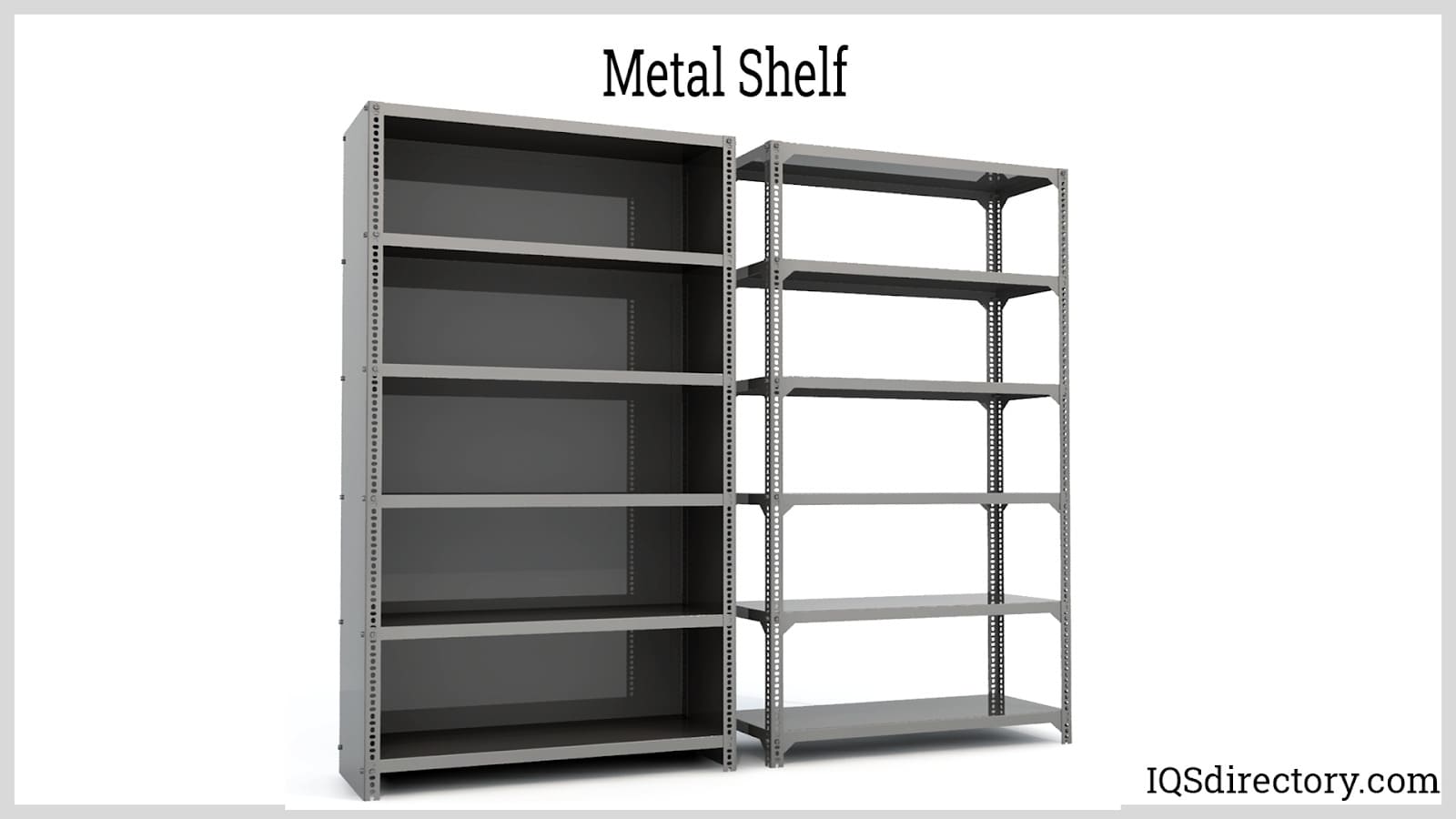

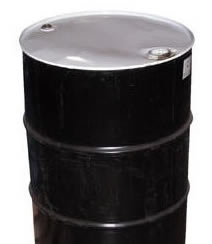 55 Gallon Drums
55 Gallon Drums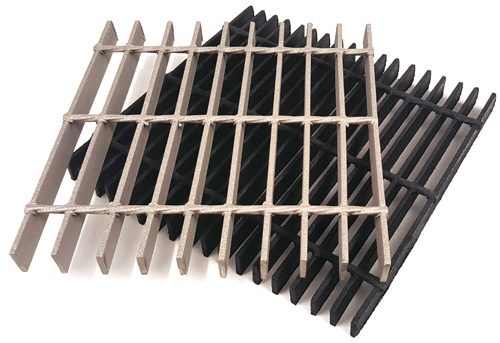 Floor Gratings
Floor Gratings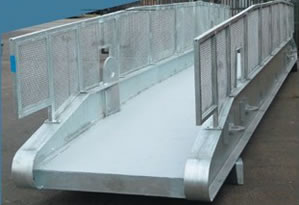 Mezzanines
Mezzanines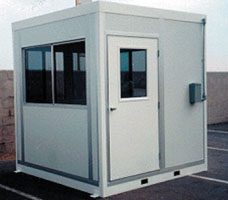 Modular Buildings
Modular Buildings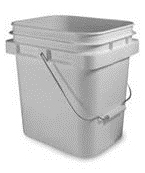 Plastic Containers
Plastic Containers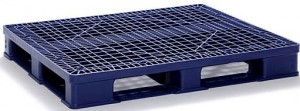 Plastic Pallets
Plastic Pallets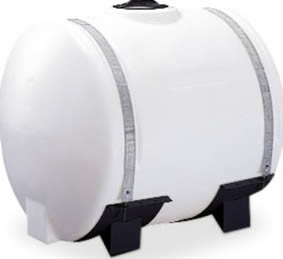 Plastic Tanks
Plastic Tanks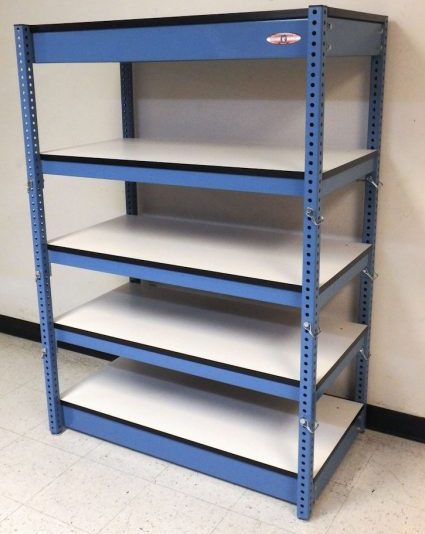 Steel Shelving
Steel Shelving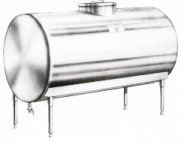 Stainless Steel Tanks
Stainless Steel Tanks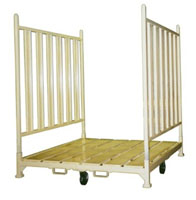 Storage Racks
Storage Racks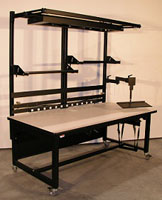 Work Benches
Work Benches Castings & Forgings
Castings & Forgings Bulk Material Handling
Bulk Material Handling Electrical & Electronic Components
Electrical & Electronic Components Flow Instrumentation
Flow Instrumentation Hardware
Hardware Material Handling Equipment
Material Handling Equipment Metal Cutting Services
Metal Cutting Services Metal Forming Services
Metal Forming Services Metal Suppliers
Metal Suppliers Motion Control Products
Motion Control Products Plant & Facility Equipment
Plant & Facility Equipment Plant & Facility Supplies
Plant & Facility Supplies Plastic Molding Processes
Plastic Molding Processes Pumps & Valves
Pumps & Valves Recycling Equipment
Recycling Equipment Rubber Products & Services
Rubber Products & Services